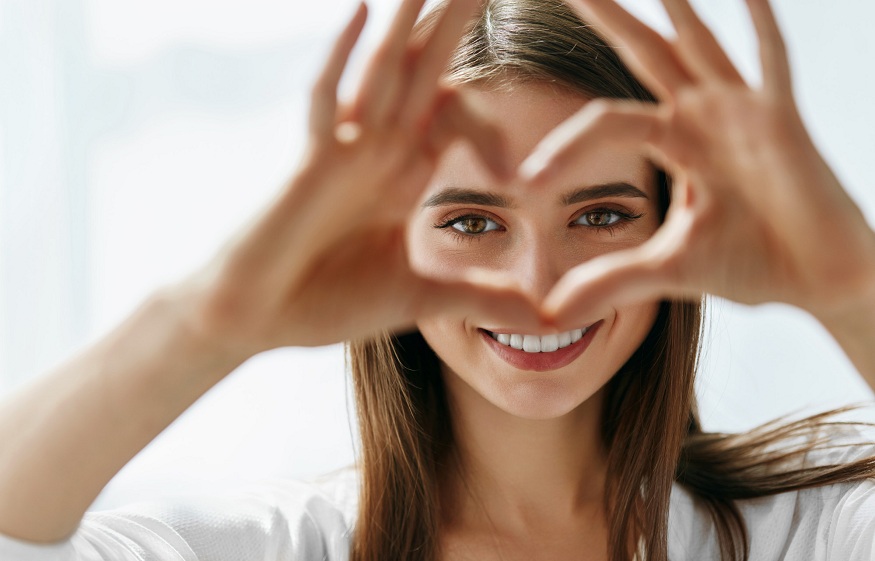Your eyes are your windows to the world, which is why it is important to take good care of them. You can keep your eyes healthy by visiting your eye doctor regularly or giving your eyes regular breaks while you use the computer. If you have vision problems, you should make an appointment with the ophthalmologist as soon as possible.
Take good care of your eyes
Make a regular appointment with an ophthalmologist. These are specialized doctors who take care of the health of the eyes. It is also possible to consult an optician or an optometrist. To keep your eyes healthy, have them checked regularly or when you have vision problems. Learn more about your eyes and ask the ophthalmologist questions if you have any. You will feel more in control of your health if you learn more about your eyes and how to prevent disease.
If you don’t have vision problems, you should see an ophthalmologist every 5-10 years when you are between 20 and 30 years old.
You should also see an ophthalmologist every 2 to 4 years when you are between 40 and 65 years old.
It is also recommended to see an ophthalmologist every year or every two years when you are over 65 years old.
Remove your contact lenses at the end of the day. Avoid wearing your contact lenses for more than 19 hours. Prolonged wearing of contact lenses can cause vision problems as well as unpleasant discomfort for your eyes .
Never sleep with your contact lenses on unless your doctor has instructed you to do so specifically. Your eyes need a regular supply of oxygen, and lenses prevent your eyes from coming into contact with this oxygen, especially during sleep. That’s why doctors recommend taking a break from wearing contact lenses at night
Do not swim with your contact lenses on unless you are wearing tight fitting swimming goggles. It would be better if you use special glasses sold in pharmacies. You can wear the lenses in the shower as long as you keep your eyes closed and avoid getting soap or shampoo in them.
Always follow the lens usage instructions and solutions provided by the manufacturer and your ophthalmologist. Also remember to wash your hands before handling them.
Remove your makeup at the end of the day. Always take the time to remove makeup from your eyes before going to bed. Never go to bed without removing your makeup first. If you go to bed with mascara or eyeliner on, it could get in your eyes and cause irritation.
Sleeping with makeup on can also clog the pores of the skin around the eyes, which can lead to the appearance of styes. A severe stye needs to be treated with antibiotics and may even need to be removed by your doctor.
Keep makeup remover wipes by your bed for nights when you’re too tired to go to the bathroom and remove makeup properly.
Use eye drops sparingly, which reduce the effect of allergenic substances. By using eye drops to treat your allergies, you might prevent them from turning red and itchy, but daily use can actually make the problem worse. The redness around the eyes could come back even stronger, as the eyes no longer respond to treatment [6].
Allergy eye drops help constrict the blood vessels in the cornea, depriving it of oxygen. Even though your eyes are no longer red and itchy, they are actually deprived of the blood that supplies them with oxygen. This is not an ideal situation because the muscles and tissues in your eyes need oxygen to function. This lack of oxygen can cause swelling and scarring
Read the label on the drops carefully, especially if you wear contact lenses. Many types of eye drops cannot be used by people who wear contact lenses. Ask your eye doctor for advice on what type of drops you can use with your lenses.
Wear sunglasses. Always wear sunglasses when you are outdoors and when the sun is shining. Find sunglasses specially designed to block between 99 and 100% of UVB and UVA rays
Prolonged exposure to UV rays can damage your eyes, which is why better protection in your youth can prevent blindness in later life. Exposure to UV rays has been linked to cataracts, macular degeneration, pinguela and pterygium, which are harmful to the eyes
Since UV damage to the eyes accumulates over time, it is important to protect children from harmful rays. Make sure your children wear hats and sunglasses when they are outside for extended periods of time.
Also be sure to wear sunglasses when you are in the shade. Even though there are less UV or HEV rays in the shade, you are still exposing your eyes to UV rays reflecting off buildings or other structures.
Never look directly at the sun even if you are wearing sunglasses. The sun’s rays are very powerful and can damage sensitive parts of your retina if you expose them directly.
Wear safety glasses when necessary. Be sure to wear safety glasses or other protective gear when handling chemicals, power tools, or when in a location with hazardous particles floating around. Wearing safety glasses will help protect your eyes from larger or smaller objects that could get in your eyes and damage them.
Get enough sleep. Inadequate sleep time can contribute to eye strain. Symptoms of eye strain include eye irritation, difficulty concentrating, excessive dryness or tears, sensitivity to light, or pain in the neck, shoulders, or back. Make sure you get enough sleep every night to avoid eye strain. Adults need 7-8 hours of sleep per night
Exercise regularly. Regular exercise can also prevent other illnesses such as diabetes. By doing at least 30 minutes of exercise three times a week, you can reduce the chances of getting serious eye diseases like glaucoma or macular degeneration
Place cucumber slices over your eyes to make them deflate. Gently press cold cucumber slices on your eyes for 10 to 15 minutes before going to bed to treat and prevent puffy eyes .
You can also use green tea bags to prevent puffy eyes by applying them to your eyes. Soak tea bags in water for a few minutes and place them over your eyes for 15 to 20 minutes. The tannins found in tea will help reduce inflammation.

